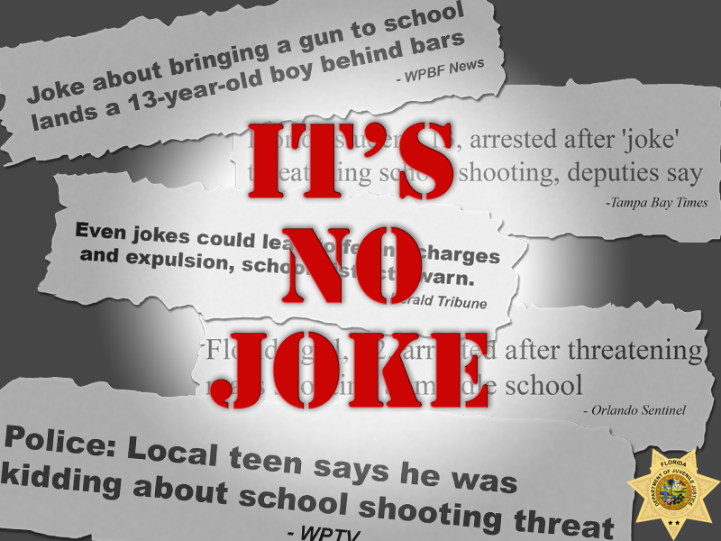
The Florida Department of Juvenile Justice announced today a new awareness campaign aimed at addressing school threats made by students in Florida. The “It’s No Joke” campaign aims to dissuade youth from making school threats because doing so can lead to being arrested and charged with a felony.
“We want young people in Florida to understand that, in today’s environment, every threat is taken very seriously and, even if made in jest, can lead to devastating consequences,” said DJJ Secretary Simone Marstiller. “There is nothing funny about threatening a school, and there is nothing funny about being charged with a felony. We want young people to think twice before casually threatening violence in their schools.”
School-related offenses include making false reports concerning a bomb, explosives, or firearms and possessing or discharging weapons or firearms on school property on a school-sponsored event. The “It’s No Joke” awareness campaign seeks to educate youth and parents that even threats made online, including on social media and gaming sites, can lead to a youth being charged with a felony offense.
Youth, parents, and teachers are also encouraged to report any and all threats they see or hear. They can notify law enforcement of a threat or can report a threat anonymously through Florida’s FortifyFL app, a suspicious activity reporting tool that allows you to instantly relay information to appropriate law enforcement agencies and school officials.
“Our top priority is the safety and security of students and teachers,” said Commissioner of Education Richard Corcoran. “It is critical that students take threats very seriously and report suspicious activity. I encourage all students and educators to download the FortifyFL app to report potentially unsafe situations, which could prevent a tragedy.”
The number of Florida youth charged with school threat-related offenses has risen steadily in the last three years. In Fiscal Year 2016-2017, 629 youth were charged with school threat-related offenses, followed by 687 youth in the Fiscal Year 2017-2018, and 779 youth in the Fiscal Year 2018-2019.
